…, OCOP products bearing the identity of the Quang Ninh highlands are gradually asserting their position in the market, bringing a stable livelihood to ethnic minorities. Not only changing production thinking, the OCOP program also opens up a sustainable direction, helping people confidently do business , escape poverty, and get rich right on their homeland.
Product diversification - Activating the internal strength of the highlands
One of the clear marks in the process of implementing the OCOP Program in the ethnic minority areas of Quang Ninh is the increasing appearance of typical individual models, contributing to the formation of product value chains and spreading the spirit of sustainable entrepreneurship from the community. A typical example is the Tien Yen chicken farming model of Mr. Be Van Ly, a Tay ethnic (Phong Du commune, now Tien Yen commune).
Tien Yen chicken farming model of Mr. Be Van Ly.
From a small-scale farming household, Mr. Ly has boldly changed the traditional way of doing things, applying the VietGAP farming model. Mr. Ly shared: “I have invested in a solid barn, divided the barn into scientific plots , coordinated with local technical staff in managing breeds, preventing epidemics and providing nutritional care. Thanks to that, my family's chicken flock has been maintained at a stable level of thousands of chickens per litter, the chicken meat meets quality standards, has a distinctive delicious flavor, and is purchased by traders and supermarkets at a high price”. From 2021 to now, his family has earned hundreds of millions of VND each year, creating stable jobs for 5-7 local workers. Not stopping there, he has also actively supported households in the village to expand the model, transfer techniques and link production, forming a Tien Yen OCOP chicken farming cooperative.
In particular, during his participation in OCOP, Mr. Ly has focused on preserving rare native chicken breeds, contributing to preserving gene sources and increasing product value. Thanks to building a closed chain from breeding, food to product consumption, his model not only helps people escape poverty, but also creates a specialty brand for his hometown Tien Yen. Tien Yen chicken has now become a symbol of OCOP products in the highlands of Quang Ninh, known to consumers inside and outside the province.
Mr. Ninh Van Trang, Director of Dap Thanh Forestry Products Trading Joint Stock Company, weighs yellow flower tea for customers.
The story of Mr. Ninh Van Trang (San Chi native), Director of Dap Thanh Forestry Trading Joint Stock Company (Dap Thanh commune, now Ky Thuong commune) is a model of perseverance and creativity in developing products from precious medicinal plants. Stemming from his love for the forest and his desire to preserve the native yellow camellia, he pioneered the construction of tea material areas in neighboring communes with suitable soil and climate conditions. More than 30 hectares of yellow camellia have been planted and cared for according to organic standards. His company invested in a modern factory, freeze-drying machine and an essence extraction system that meets ISO22000 standards. Mr. Trang said: The company's yellow camellia products are not only dry tea but also expanded to finished products such as essence, capsules, tea bags, high-end packaging to serve the gift and export segments.
In addition to the product that has achieved the national 5-star OCOP, Mr. Trang also actively connects with experiential tourism, bringing tourists to visit the tea garden, learn about the production process, and connect with green consumption. He is also one of the pioneers in mobilizing people to join the cooperative group growing yellow flower tea, supporting seeds, techniques, and product consumption, thereby forming a closed production chain, bringing high income to many local households.
Packaging of Golden Flower Tea products at Dap Thanh Forestry Products Trading Joint Stock Company.
Not only a businessman, Mr. Trang is also a person who sows the seeds of aspiration for the community, when he inspires ethnic minorities to see the value of local resources. His model is creating jobs for dozens of regular workers, most of whom are ethnic minorities. The wild hills are now covered with the green color of yellow camellia flowers, both protecting the environment and creating sustainable livelihoods.
Chili pepper growing model of Mr. Ly Van Quan (wearing a conical hat).
Not only middle-aged people are successful, the OCOP startup wave has also spread to young people with knowledge and a spirit of dedication to the community. A typical example is Mr. Ly Van Quan, a Dao ethnic teacher (Dai Duc commune, now Tien Yen commune). During his teaching, he realized that the red-whiskered bulb chili plant, a precious native variety of the Dao people, can become an economic crop if grown properly. "I have learned and researched about organic agriculture and started a business with a safe, chemical-free red-whiskered bulb chili plant model," Mr. Quan shared.
From the initial 2,000m² of fields, he expanded to more than 1 hectare, invested in a system of processing houses, dryers, grinders and packaging lines. Chili processed products such as: Chili salt, dried chili, chili powder... under the brand name "Chili" are gradually becoming known to consumers inside and outside the province. Not only creating good income, his model also helps dozens of households in the commune have jobs, especially ethnic minority women. He also actively promotes products through e-commerce platforms, OCOP fairs and is completing the application for provincial OCOP product classification in 2025.
Mr. Ly Van Quan's chili pepper growing model has been expanded to more than 1 hectare.
Notably, Mr. Quan has taken advantage of social networks and digital platforms to spread the value of his products. He organizes livestreams, records videos to share the production process, and interacts with customers to increase brand awareness. With the spirit of innovation, creativity, and daring to think and do, he has become a role model for ethnic minority youth to rise up with their own strength and promote the values of their homeland.
From these typical models, it can be seen that the OCOP program in the ethnic minority areas of Quang Ninh not only unlocks economic potential but also changes production thinking, connecting people with markets and technology. Each OCOP product is now not just a commodity, but also a story about the land, people, identity, a symbol of the rise from the community's own internal strength.
Lighting up the desire to get rich from the village
Binh Lieu cellophane noodles are an OCOP product produced by the people of Binh Lieu highlands.
Following the successful OCOP models, Quang Ninh is actively expanding the program development space in mountainous districts and ethnic minority areas in the Eastern region of the province. Here, OCOP is not only a product development program, but also an overall strategy to exploit local resources and develop the rural economy in a sustainable and modern direction.
In ethnic minority areas, the OCOP program has breathed new life into rural life. Binh Lieu vermicelli, a national 5-star OCOP product, is a clear demonstration of the local breakthrough. Taking advantage of the soil and climate suitable for the arrowroot plant, cooperatives have boldly invested in clean vermicelli processing technology, solar drying, and modern packaging. The product is naturally white, chewy, fragrant, and especially safe for consumers.
Not stopping there, the people here also focus on building geographical indications for the product, protecting the Binh Lieu vermicelli brand and developing a closed value chain. Currently, the product is available in many large supermarkets, put on e-commerce platforms and exported to Korea and Japan. Thanks to vermicelli, hundreds of households in the highlands have a more sustainable source of income, many young people return to their hometowns to start businesses, sticking with the traditional profession.
Tien Yen chicken is widely propagated and raised on a large scale by many highland youths in Tien Yen commune.
Another highlight is Binh Lieu So oil product, processed from So seeds, a familiar indigenous forest tree of the Dao people. So oil has a high omega-9 content, good for cardiovascular health, and has been produced organically by households and cooperatives. Along with other OCOP products such as Cooc Mo cake, yellow flower tea, traditional leaf yeast wine, etc., it is gradually building a distinct OCOP identity associated with the culture and ecology of the highlands.
In Quang Tan commune, ethnic minorities have known how to take advantage of cinnamon forests to extract cinnamon essential oil, a potential product highly appreciated in the fields of medicine and cosmetics industry. With the support of the locality and the OCOP program, some households have boldly invested in essential oil distillation lines, built packaging facilities, labels, and traceability. Thanks to that, the value of cinnamon trees has increased many times compared to before, at the same time helping people protect forests, develop the economy while still preserving native nature.
Meanwhile, many places in the Eastern region of the province are also focusing on developing OCOP products from forest medicinal herbs such as green lim mushrooms, medicinal tea, natural forest honey, etc. A typical example is the Nam Son Green Medicinal Herbs Cooperative (Ba Che commune), specializing in producing tea bags from native plants such as stevia, guava leaves, polyscias fruticosa leaves, etc., combining research with the National Institute of Medicinal Materials to ensure the content of active ingredients and food safety. These products not only bring economic value, but are also symbols of a green, environmentally friendly lifestyle.
To continue to effectively spread the program, Quang Ninh province is focusing on 3 breakthroughs: Developing OCOP products typical of the region; building an OCOP startup ecosystem for ethnic minorities; improving management capacity for OCOP entities. Training courses on marketing, e-commerce, quality management, etc. are held regularly. Many young ethnic officials and entrepreneurs have emerged from these courses, becoming the core of community economic development.
In addition, the province also focuses on capital support policies, trade promotion, and infrastructure investment to serve OCOP in the highlands. The OCOP showroom system is built at key tourist destinations, integrating experience spaces and product display, helping to connect production areas with the market. The province also boldly eliminates low-quality products, encourages innovation, and upgrades OCOP star ratings according to national and international standards.
Tien Yen chicken is an OCOP product that many people in Tien Yen commune have invested in developing.
It can be said that OCOP in the ethnic minority areas of Quang Ninh is entering a period of stronger and more sustainable development. Not only a product, OCOP has become a symbol of the entrepreneurial spirit and self-reliance of the people in the mountainous areas. Cakes, bottles of honey, jars of palm oil, etc. not only carry the flavor of the village, but also imbued with the desire to integrate and reach out to high-end markets. OCOP has been contributing to creating a new look for the highlands of Quang Ninh, where traditional values are awakened, preserved and developed in a modern breath.
Up to now, Quang Ninh has 435 OCOP products with 3 stars or more, of which 8 products have met the national 5-star OCOP standard. This is the result of a systematic orientation: Developing OCOP products associated with local advantages, applying modern technology, investing in production processes according to international standards such as HACCP, ISO 22000, developing organic raw material areas, designing professional packaging and maximizing the power of e-commerce.
The province has also issued more than 2,600 QR codes for traceability, 1,339 accounts to operate the OCOP management system, and connected 100% of 3-5 star OCOP products with e-commerce platforms such as Postmart, Voso, Shopee... Since the beginning of 2025, many fairs and trade promotion programs have been organized, creating opportunities to connect OCOP products with domestic and foreign businesses and consumers.
Along with that, Quang Ninh province also proactively eliminates low-quality products (73 products will be eliminated in 2023), improving management capacity for OCOP entities, aiming for sustainable development. Training activities on production management, food safety, branding, and trade promotion are being widely deployed.
All of this shows that the OCOP program is not only “one commune, one product”, but also one aspiration for each village, one journey for each person to do creative and professional economic activities. With the goal of having 15-20 more 5-star OCOP products with the Quang Ninh brand by 2030, the province is gradually realizing the goal: Turning resources into value, identity into advantage, helping ethnic minorities not only escape poverty, but also rise up to become economic masters in a sustainable, confident and proud way.
Thanh Hang
Source: https://baoquangninh.vn/da-dang-hoa-san-pham-ocop-huong-di-ben-vung-tu-vung-cao-quang-ninh-3367596.html


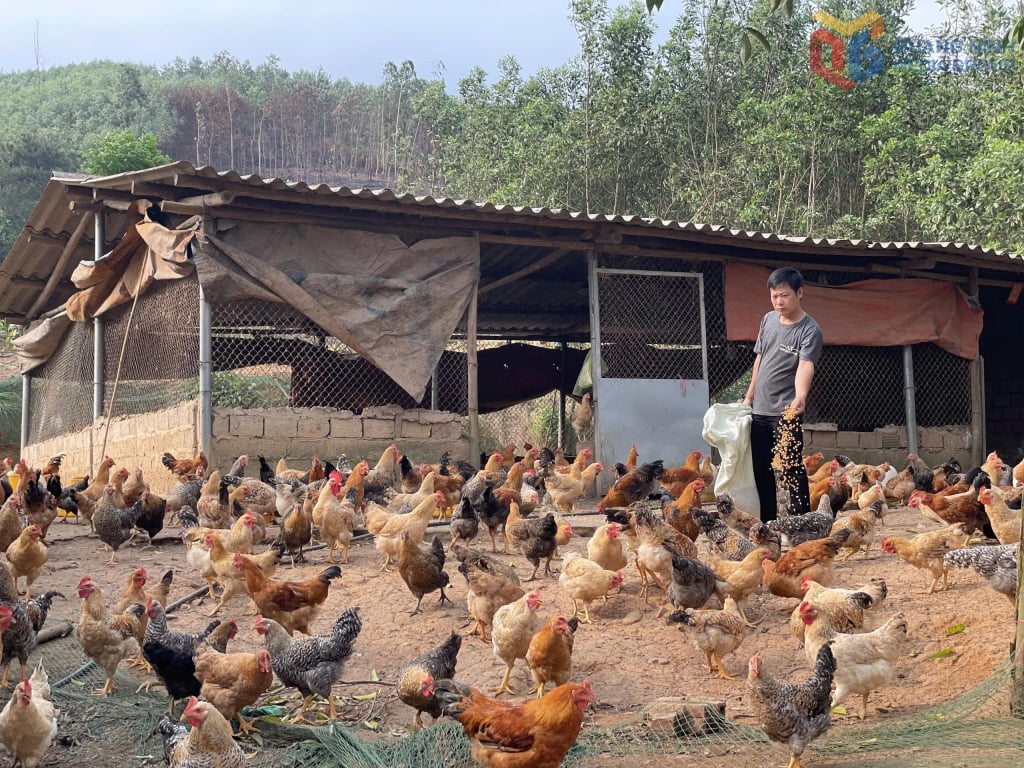
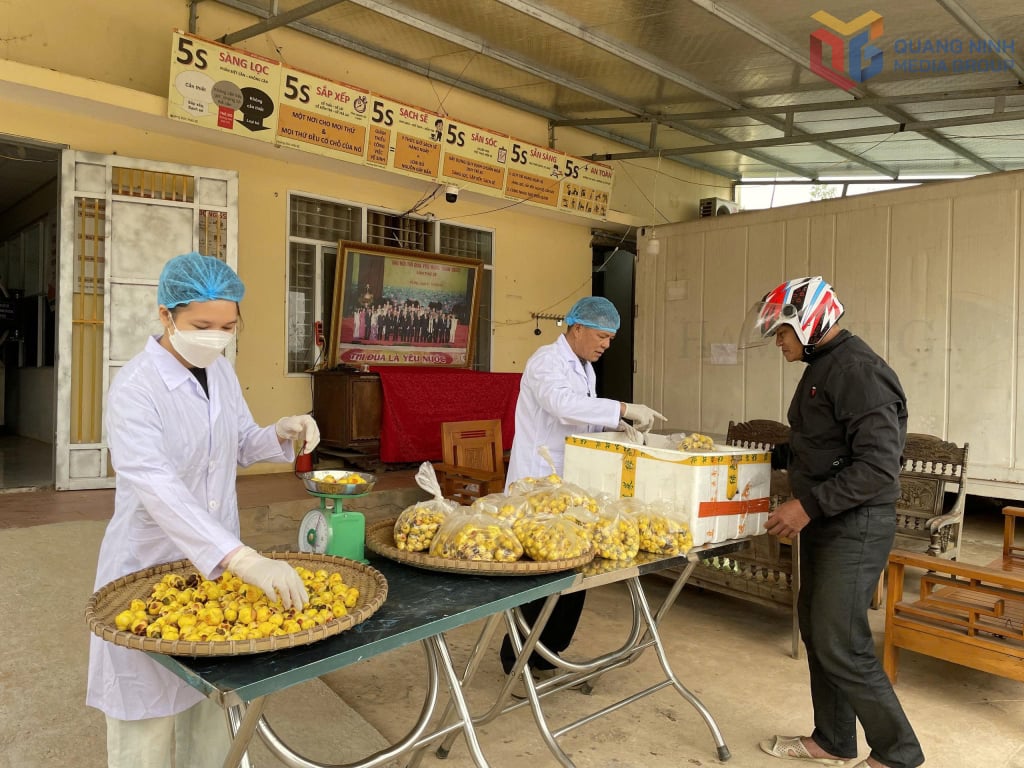
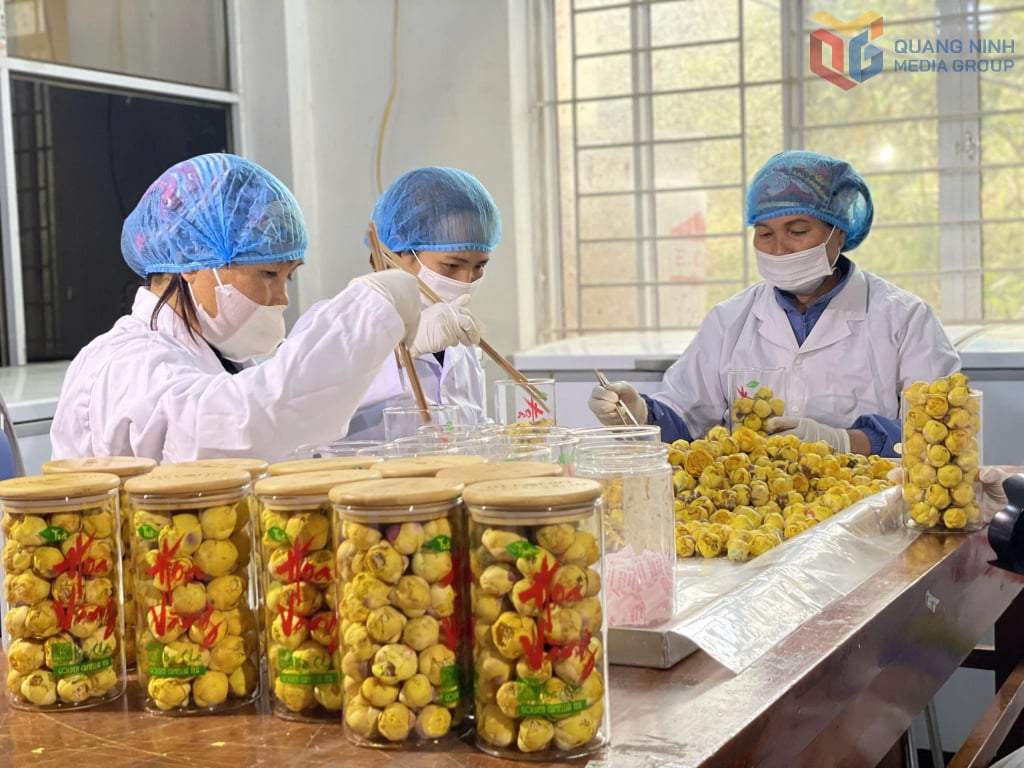
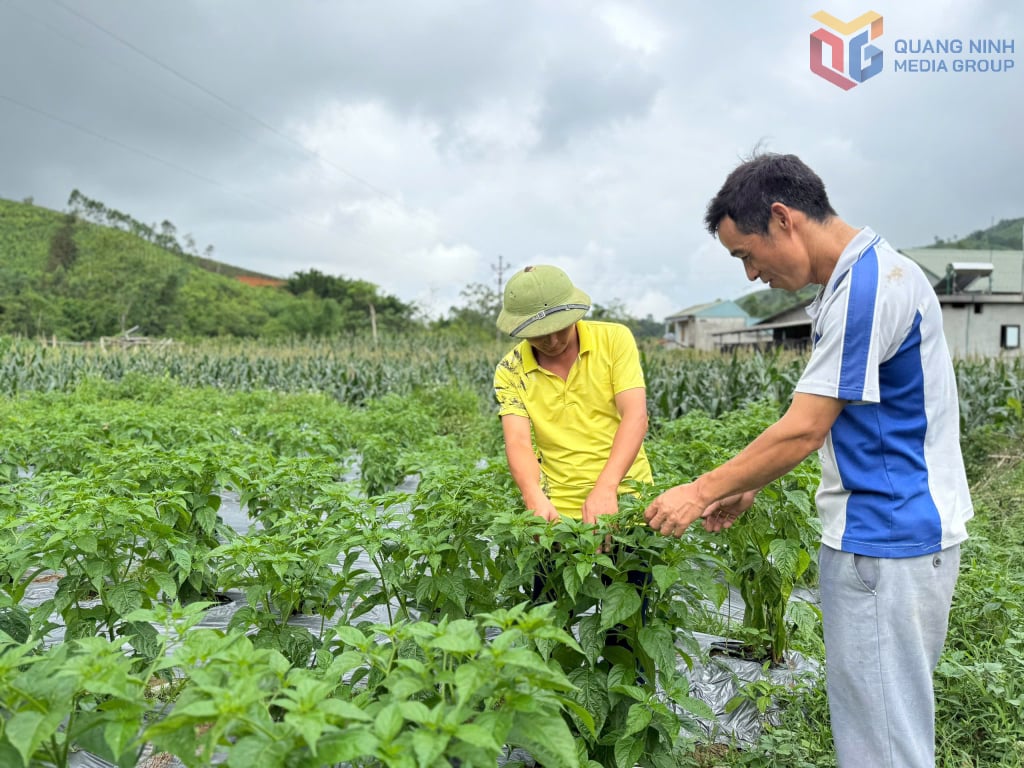
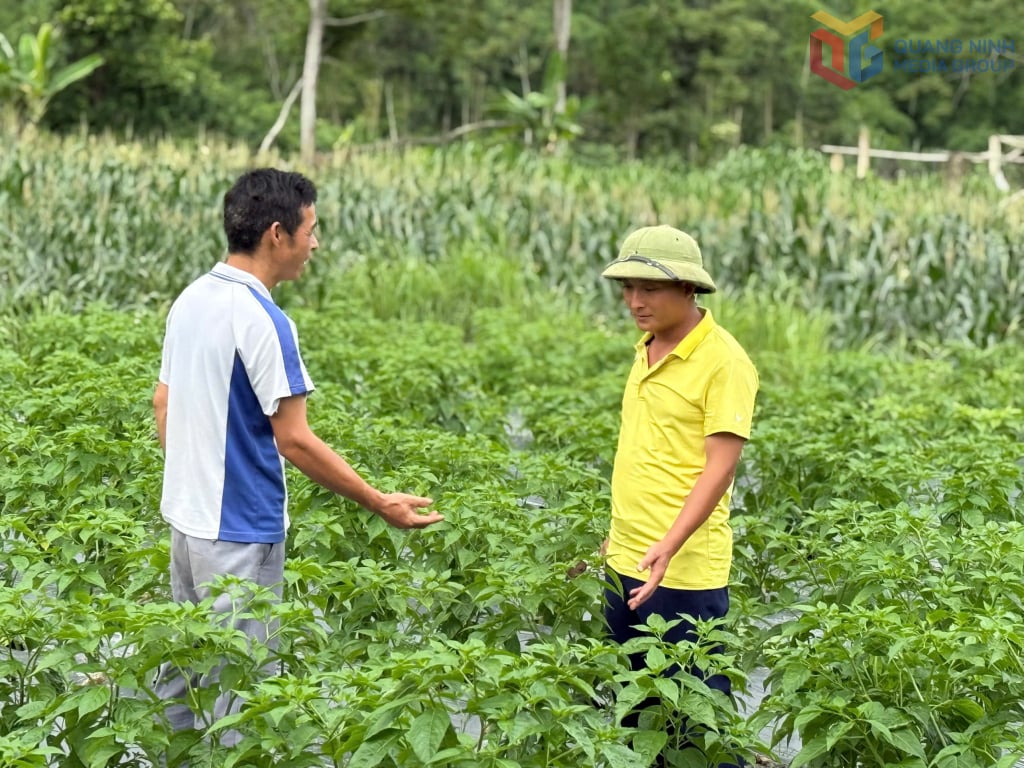
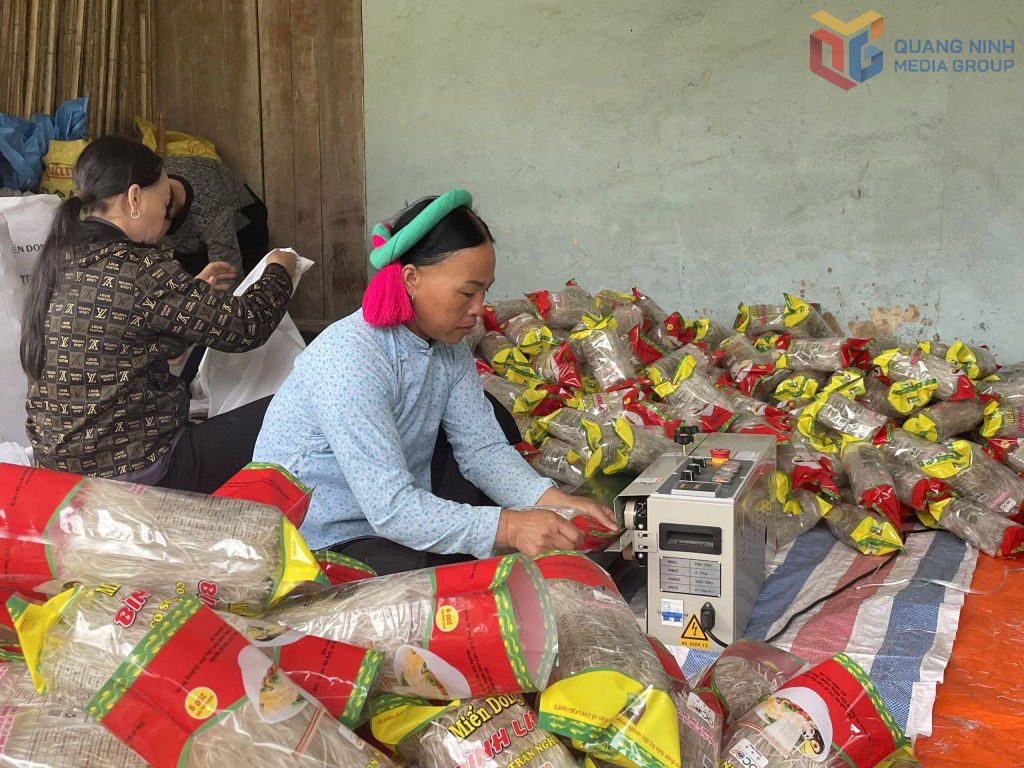
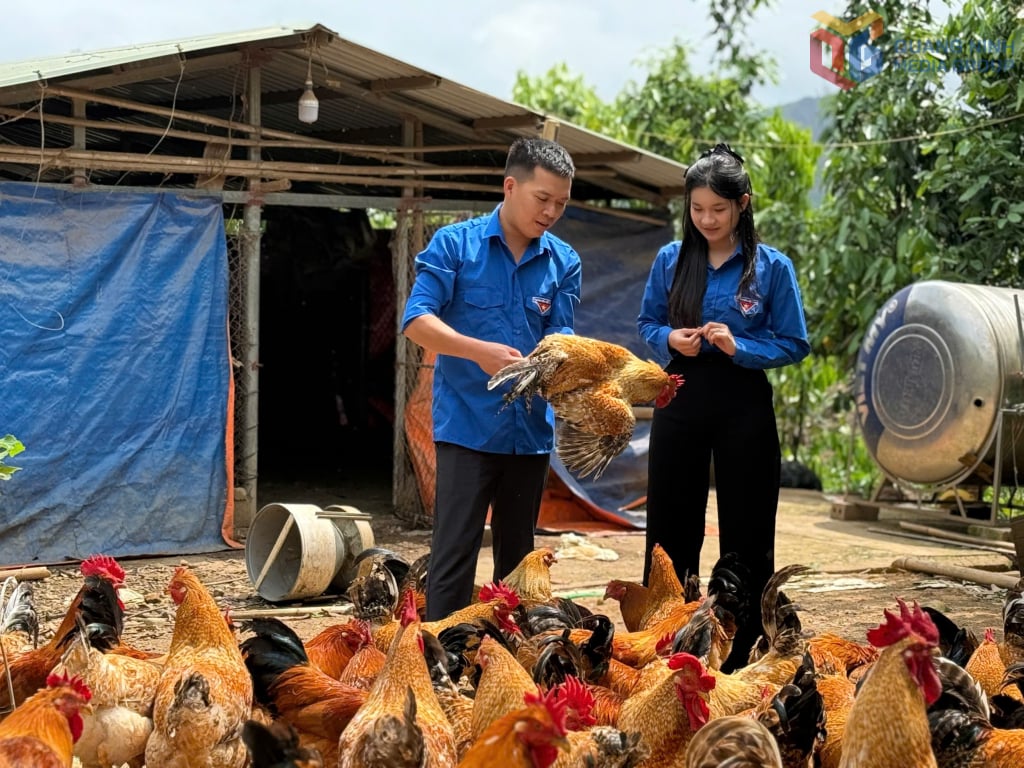
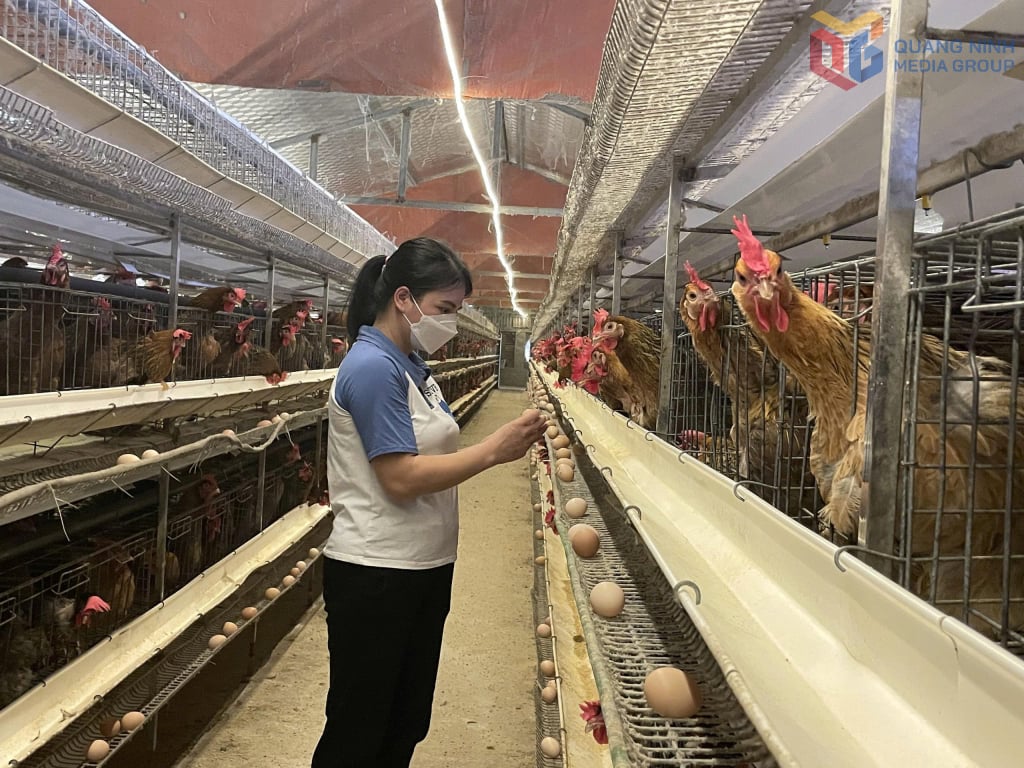
![[Photo] Students of Binh Minh Primary School enjoy the full moon festival, receiving the joys of childhood](https://vphoto.vietnam.vn/thumb/1200x675/vietnam/resource/IMAGE/2025/10/3/8cf8abef22fe4471be400a818912cb85)



![[Photo] Prime Minister Pham Minh Chinh chairs meeting to deploy overcoming consequences of storm No. 10](https://vphoto.vietnam.vn/thumb/1200x675/vietnam/resource/IMAGE/2025/10/3/544f420dcc844463898fcbef46247d16)

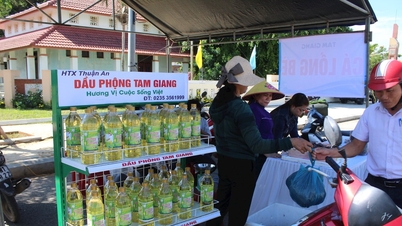

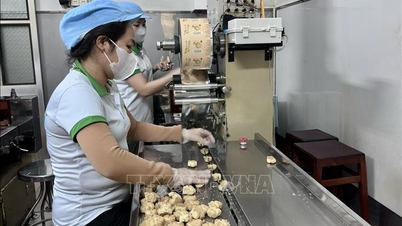

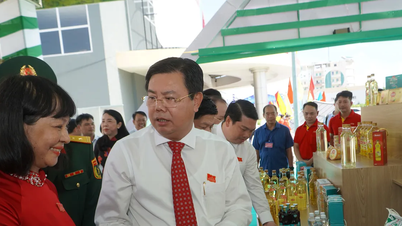

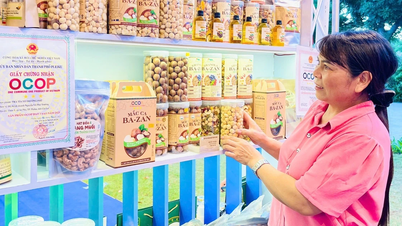



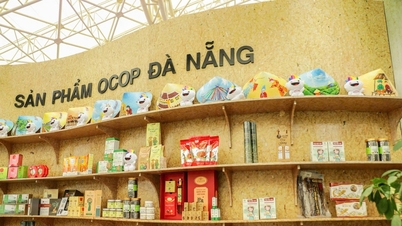





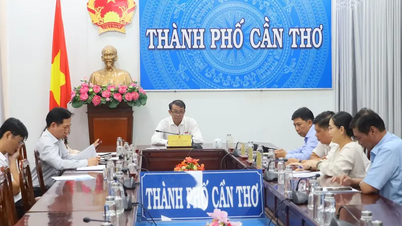

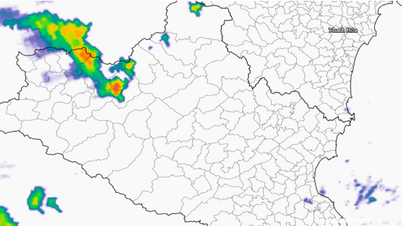

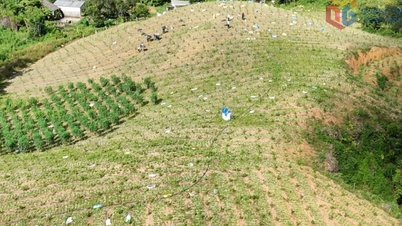




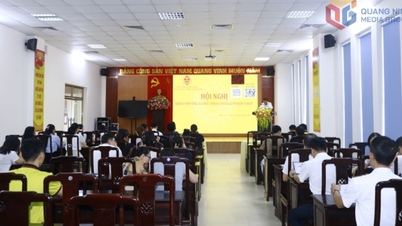
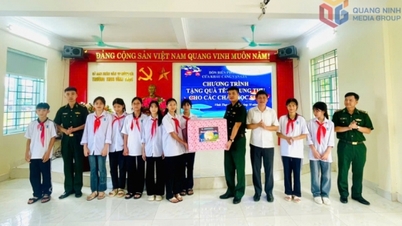
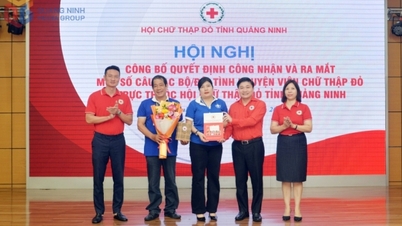
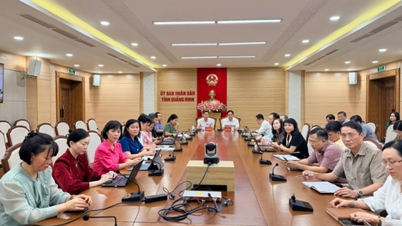
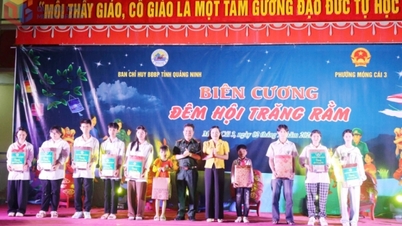

















































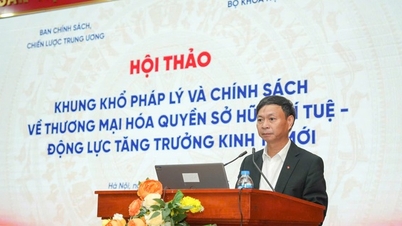


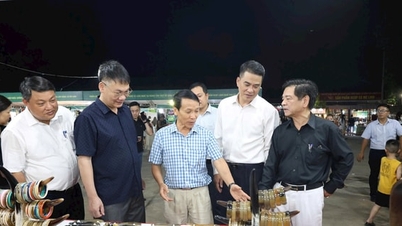



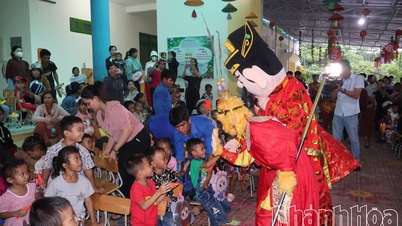

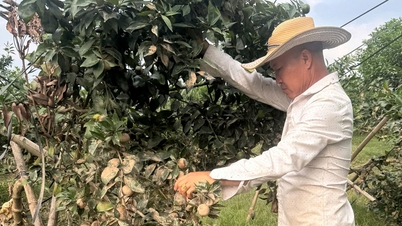
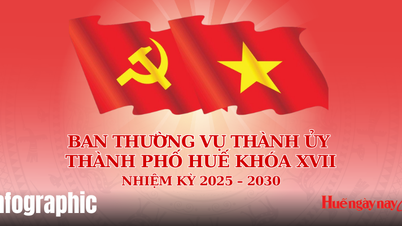













Comment (0)